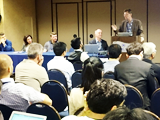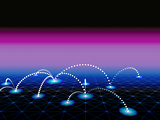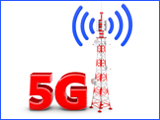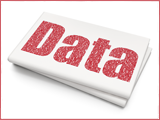IMDEA Networks

Archivos: Events
Robustness and Privacy in Mobile and Wireless Systems
Wireless communication is not only a key technology underlying the mobile revolution, it is also used to connect, monitor, alert, and interact with physical infrastructures such as smart-grids, transportation networks, and even implantable devices.
Seguir leyendo arrow_right_altDefensa Tesis Doctoral: Achieving Reliability and Fairness in Online Task Computing Environments
We consider online task computing environments such as volunteer computing platforms running on BOINC (e.g., SETI@home) and crowdsourcing platforms such as Amazon’s Mechanical Turk. We model the computations as an Internet-based task computing system under the master-worker paradigm. A master entity sends tasks across the Internet, to worker entities willing to perform a computational task.
Seguir leyendo arrow_right_altInnovation through Joint Industry-Academic Partnerships
5TONIC Vice-President Arturo Azcorra participates in a panel entitled ‘Innovation through Joint Industry-Academic Partnerships’ at IEEE INFOCOM. At this panel he presented the work of 5TONIC as an example of the successful partnership between industry and academia currently driving innovation and research in communication networks in Europe.
Seguir leyendo arrow_right_altDefensa Tesis Doctoral: Inter-domain traffic management in an evolving Internet peering ecosystem
The operators of the Autonomous Systems (ASes) composing the Internet must deal with a constant traffic growth, while striving to reduce the overall cost-per-bit and keep an acceptable quality of service.
Seguir leyendo arrow_right_alt9th IMDEA Networks Annual International Workshop: Enabling future internet applications
IMDEA Networks Institute annually holds a by-invitation-only thematic workshop in Madrid. The workshop accompanies a meeting of our Scientific Council comprised of prominent researchers. In addition to talks by Scientific Council members, the workshop includes invited talks by external experts in the research theme of the workshop. The goal of the 2017 event is to foster discussion about future internet applications with particular focus on networking, privacy and security challenges.
Seguir leyendo arrow_right_altRecent advances on hybrid Open-Flow/All-Path switches and Path Discovery protocols (AOSS, TCP-Path, Multiple Disjoint Paths)
After a number of years of its launch, OpenFlow does not yet provide deployable alternatives but it has fully changed the conceptual approach to manage and control networks.
Seguir leyendo arrow_right_altSoftAir: A Software-Defined Networking Architecture for 5G Wireless Systems
SoftAir is a new wireless software-defined architecture with network function virtualization (NFV) solutions for 5G wireless systems. The concept of SDN has been proposed to efficiently create centralized network abstraction with the provisioning of programmability over the entire network.
Seguir leyendo arrow_right_altBig Crisis Data - an exciting frontier for applied computing
Social media is an invaluable source of time-critical information during a crisis. However, emergency response and humanitarian relief organizations that would like to use this information struggle with an avalanche of social media messages, exceeding their capacity to process them.
Seguir leyendo arrow_right_altTime-Critical Social Mobilization: from the DARPA Red Balloon Challenge to the Nightmare Machine
This seminar explores the physical, behavioral, and computational limits of crowd-assembly for problem-solving.
Seguir leyendo arrow_right_alt5G – Standardization, current state and evolution
The seminar will cover the current status of the standardization in 3GPP of the new 5G radio interface (NR) and core network (NGC), including the steps undertaken for the acceleration process recently approved, that will allow for early implementations by the end of 2018.
Seguir leyendo arrow_right_alt











Comentarios recientes